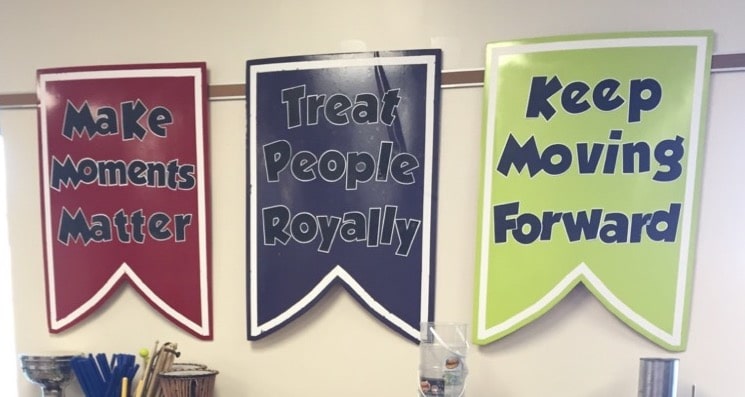
Three Classroom Rules for Elementary Music Class
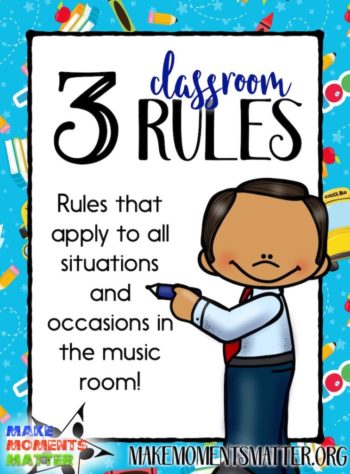 The summer before my first year of teaching I was swimming with ideas about what songs I wanted to teach, how to set up my classroom, what things I needed to buy or make, and so much more. Like any good education student who has read “The First Days of School” by Harry Wong (this is a MUST read, by the way if you are a student teacher, first year teacher, or just want reinforcement with classroom management) I knew that I had to have my procedures and elementary music rules in place from the beginning.
The summer before my first year of teaching I was swimming with ideas about what songs I wanted to teach, how to set up my classroom, what things I needed to buy or make, and so much more. Like any good education student who has read “The First Days of School” by Harry Wong (this is a MUST read, by the way if you are a student teacher, first year teacher, or just want reinforcement with classroom management) I knew that I had to have my procedures and elementary music rules in place from the beginning.
I thought long and hard about rules/procedures for my classroom and that first year I did alright. As one might expect, my first couple years were filled with a lot of different rules and changing procedures as I learned what was really important to me, how my kids reacted to me and one another, and what sort of guidelines I needed to have in place to make the classroom run smoothly.
When you teach a subject like music, you find that it’s hard to craft rules that apply to all the different students in your building. How can you create a set of expectations for 500 completely different little minds that sometimes come from various cultural backgrounds? The expectations need to make sense to students at different levels, students with different mastery of things as basic as hand-eye coordination, students on the Autism spectrum, students with physical disabilities, students with IEPs for special education consideration, students rom different cultures.
And those elementary music rules need to be basic enough (and specific enough) for completely different situations from playing melodic instruments to folk dance to composition to guided listening… Oh and all of these must apply to students with a 6 year age difference and are at completely different levels of cognitive development? If I wrote out specific rules for all those different situations and students I would run out of wall space to display them all (to say nothing of remembering them all). Can you imagine… “Carlos! Please refer to Rule 27C – Never touch the instruments when…” No way…I really wanted a streamlined set of rules that applied to all my students and situations. I really needed a set of rules that everyone could understand and that I could use for any situation and any kid.
AND ONE MORE THING… I wanted my rules to be about relationship and not about rule following. Does that make sense? I wanted students to come to my room and be held accountable for being kind and caring and fair with one another. They get so many “You can’t do this!” and “Do it this way!” everywhere else. I wanted rules that would allow for some error and would allow for some growth. Yes, I have unspoken rules that students know are school-wide expectations: “No hitting” “Don’t copy someone else’s work” and so on. I see those as universal rules. They’re just expected. Music is one of the few places where kids interact with one another and create together and have safe interactions. We teach social skills and working with peers just as much as we teach the actual art of music. My rules encourage working together, making ourselves better, and learning as a group.Here are the rules as I tell them to my students with examples and explanations. We take a day at the beginning of the year to go over them (and then touch on them again at the beginning of the new semester in January). I talk about the expectations a lot and refer to them often so they stay in kids’ heads.
Make Moments Matter
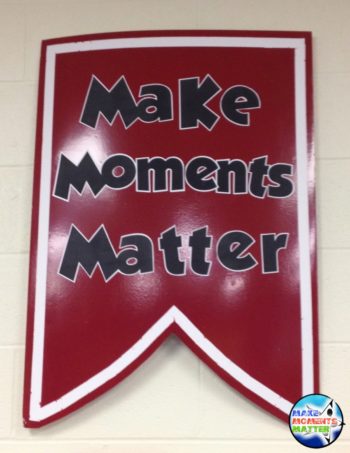 Don’t waste an opportunity. Sometimes you only get one chance to do something. When you get your chance, don’t be scared. Don’t be overwhelmed. Don’t run off crying before you try. You can do it! Take a chance and do your best. AND ALSO, don’t waste your chance. If you get an opportunity to play the xylophone, don’t sit there goofing off or talking to your neighbor. Really work hard to make each experience your best. You only get music for an hour a week. Only an hour! If you spend even a few minutes goofing off you’ve missed so many important moments that you won’t get back!
Don’t waste an opportunity. Sometimes you only get one chance to do something. When you get your chance, don’t be scared. Don’t be overwhelmed. Don’t run off crying before you try. You can do it! Take a chance and do your best. AND ALSO, don’t waste your chance. If you get an opportunity to play the xylophone, don’t sit there goofing off or talking to your neighbor. Really work hard to make each experience your best. You only get music for an hour a week. Only an hour! If you spend even a few minutes goofing off you’ve missed so many important moments that you won’t get back!
If I said to Brenda, “Hey Brenda, you’re an amazing recorder player. Why don’t you help us out and improvise a two measure melody on BAG.” And she said, “Mr. Row, I can’t because in P.E. Alexander was mean to me and didn’t let me hold the ball when we were playing Zone Out.” Would she be making her moment matter? Nope. She would be thinking about something else that happened somewhere else that doesn’t have anything to do with the recorder. When it’s your chance you’ve got to take it. Don’t let other things stop you from doing your absolute best. Make each moment matter like you won’t get any other chance!
Keep Moving Forward
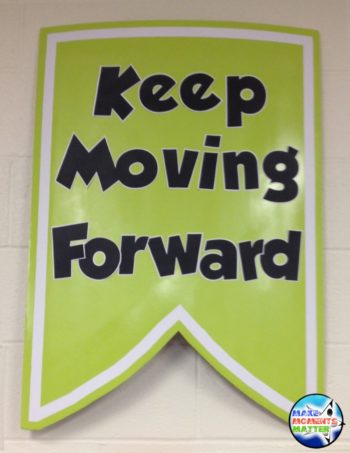 Do you remember some of the cool songs that we did last year? The fun dances? The way we played the instruments? The awesome stuff that we read and composed? It was pretty fun, wasn’t it!? Do you think that we should do ALL the same things again this year? Do you think that we could just repeat all the stuff we did, would that be fun? No way! You can’t do that stuff again, you’re older now. You’re smarter now. We can’t get stuck with that stuff, we’ve got to move forward and try new things!
Do you remember some of the cool songs that we did last year? The fun dances? The way we played the instruments? The awesome stuff that we read and composed? It was pretty fun, wasn’t it!? Do you think that we should do ALL the same things again this year? Do you think that we could just repeat all the stuff we did, would that be fun? No way! You can’t do that stuff again, you’re older now. You’re smarter now. We can’t get stuck with that stuff, we’ve got to move forward and try new things!
Moving forward is a good thing, but it can also be hard. It’s not easy to try new things or to do things in a different way. And things ARE going to be harder. You can do it! If you make each moment matter and really work hard, I’m sure you’ll be able to do every single thing that we try out this year.
What happens if you don’t? What happens if you make a mistake, should you run off crying? No. What happens if you look silly or sound weird? Should you stop and never try again? No way! You are smart kids and you have great ideas! Remember what we learned about mistakes? They’re okay. This is hard, new stuff, remember? You’re going to make mistakes, and that’s OKAY! If you make a mistake don’t stop and never try again. Keep moving forward. Get up, brush off, and try again. Once you figure it out, you’ll keep moving forward and forward and forward.
Treat People Royally
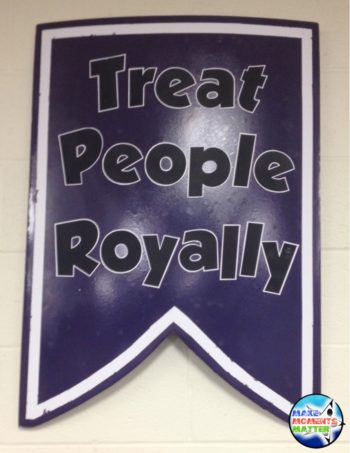 Does anyone know what “Royally” means? It sounds like another word I know: Royalty. (Give time for a kid answer here). Yeah. Royalty are like Kings and Queens and Princes and Princesses. They’re VERY important people. You would have to treat them incredibly nicely. Can’t be mean or rude to them! If the Queen of England walked in here right now and asked (in your best British accent) “Can you please tell me where the office is?” Would we say “No way, lady! And stop it with your weird accent!” No! We couldn’t say that to the Queen! We would say, “Your highness! The office is just down the hall on your left. Here, let me take you there!” When you treat someone royally, you are on your best behavior and treat them as if they’re the most important people in the whole country!
Does anyone know what “Royally” means? It sounds like another word I know: Royalty. (Give time for a kid answer here). Yeah. Royalty are like Kings and Queens and Princes and Princesses. They’re VERY important people. You would have to treat them incredibly nicely. Can’t be mean or rude to them! If the Queen of England walked in here right now and asked (in your best British accent) “Can you please tell me where the office is?” Would we say “No way, lady! And stop it with your weird accent!” No! We couldn’t say that to the Queen! We would say, “Your highness! The office is just down the hall on your left. Here, let me take you there!” When you treat someone royally, you are on your best behavior and treat them as if they’re the most important people in the whole country!
Now you probably hear from other teachers or friends that you should treat people the way that you want to be treated… but that’s not what I’m saying. That’s not enough!! You have to treat them BETTER than you want to be treated! I want you to treat each other like ROYALTY! Treat each person in this room as if they were a king or queen. If someone came to you and asked to be your partner and you said “No way!” would that be treating them royally? How about if you looked at another kid and said “You smell like a trashcan!” would that be treating them royally? Really think about what you’re doing and saying! It’s important to treat people right!
(I make sure to make good eye contact with this part) You know, in my eyes, each one of you really is as important as a king or a queen. You mean that much to me. I want to treat each one of you as if you are one of the most important people in the whole land. I’m going to treat you like royalty! If you treat one another as nicely as you would treat royalty, think of all the amazing fun that we would have.
Once we’ve gone over the elementary music rules and talked about them and made sure that everyone understands, we go on to a game or song. That say day I talk about the rules during our activity, for example, “Wow, Jesse! I love how you shared your eraser and even helped Flora without her even asking you! It looks like you’re treating her royally!” After that first day, I refer to the rules FREQUENTLY in the first few weeks so that kids see the application. I always link back and try and make these rules apply. Someone messes up while playing the recorder? “No worries! Make Moments Matter and try again.” Someone said something nasty to another kid in line? “Is that Treating them Royally? Think about it!” A kid is only using quarter notes and quarter rests in their composition? “Oh! We just learned about half notes and half rests, and you already know about eighth note pairs! You can’t use something as easy as ta and ta rests! Keep Moving Forward to harder things!”
These rules aren’t totally universal but they fit my purposes and work in almost any situation. Feel free to adapt them as you see fit.


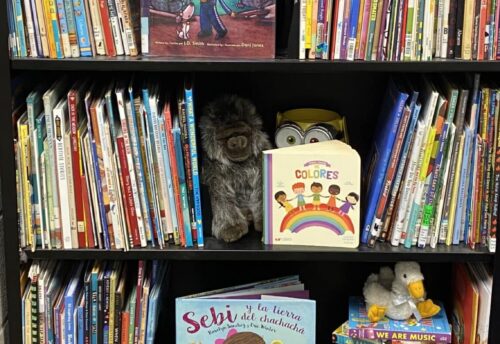
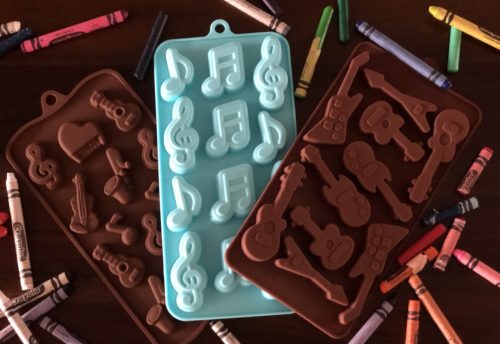
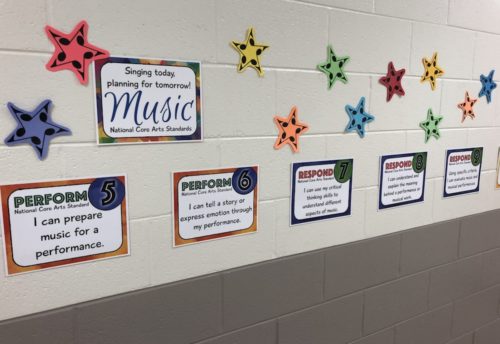
6 Comments